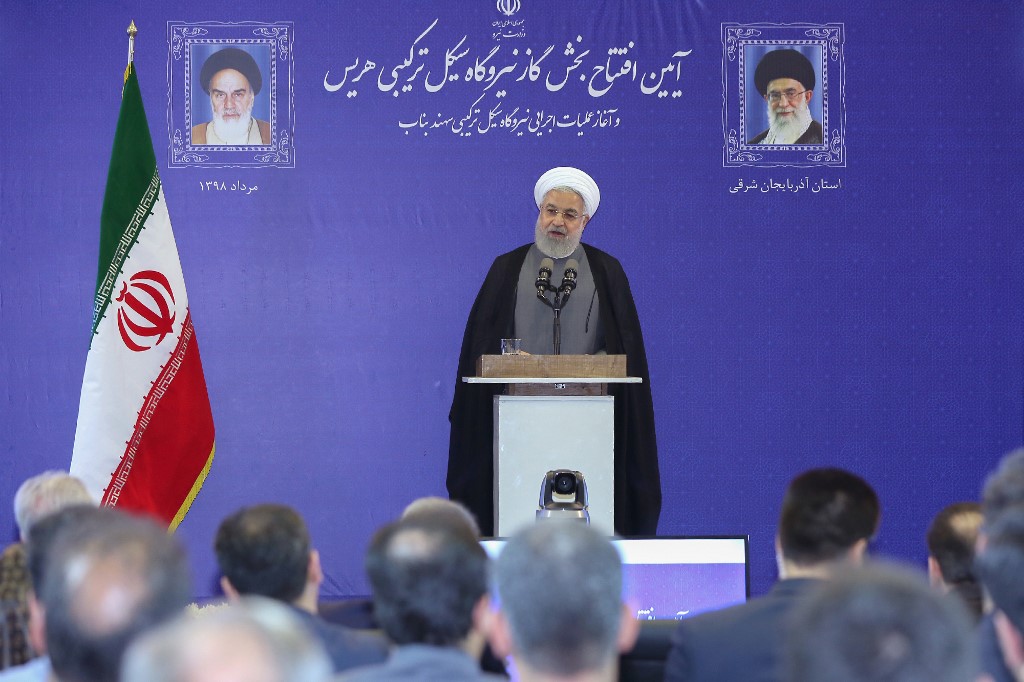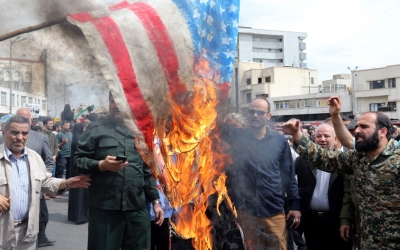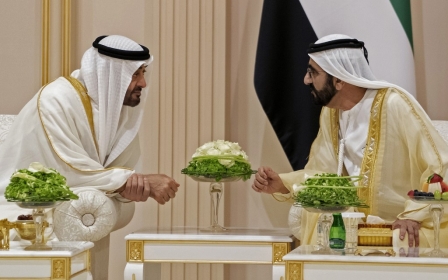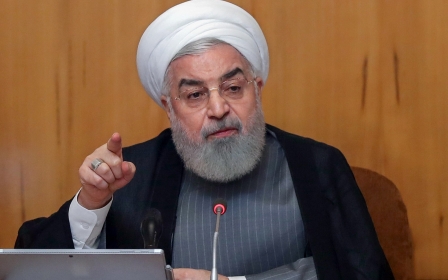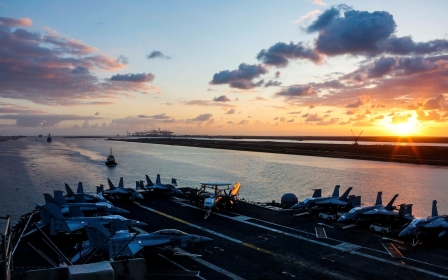What will come of the emerging Gulf thaw?
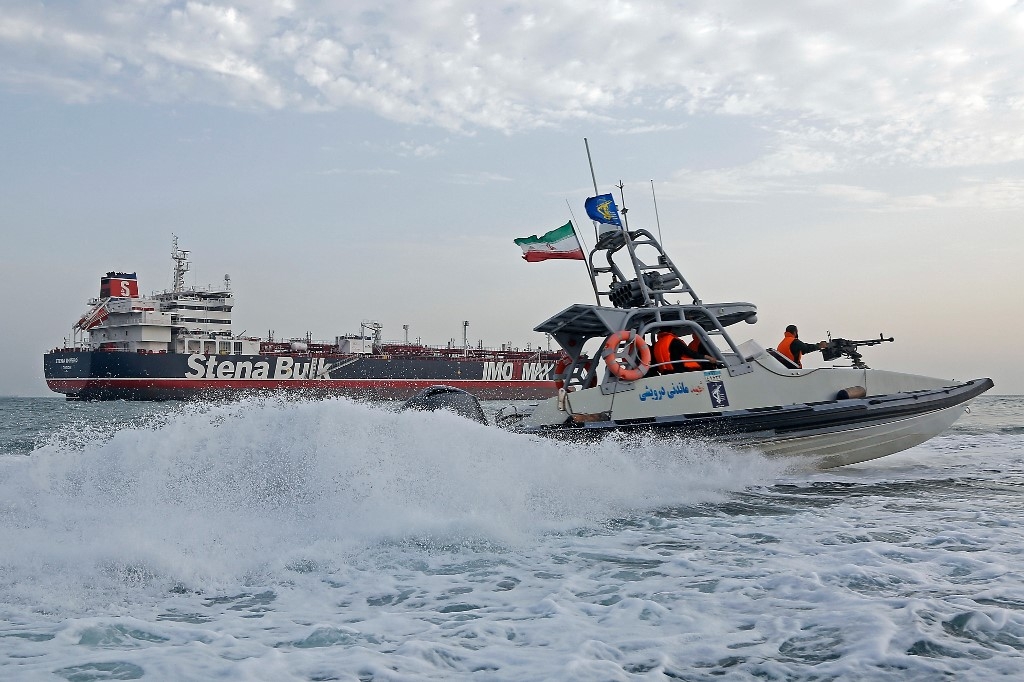
After months of building tensions, an emerging thaw between Iran and the Saudi-led bloc has improved the geopolitical climate in the region.
Verbal attacks and mutual vilification have decreased; Iran has thanked Saudi Arabia for releasing one of its oil tankers; close to 90,000 Iranian pilgrims are participating in this year’s Mecca pilgrimage, so far without incident; the UAE has dispatched delegates to Iran for peace talks; and Saudi officials have gone on record stating Riyadh’s desire to avoid war with Iran.
Alongside the UAE’s decision to draw down its commitment to the Yemen war, these developments bode well for regional security, leading some commentators and officials to sound optimistic about de-escalation in the Gulf. But are the differences between Iran and the Saudi-led bloc reconcilable, and can they really chart a new map towards rapprochement?
Two schools of thought
In Iran, there are two schools of thought on this: optimistic and cynical. The former interprets these signs as serious, indicating a shift in the approach towards Iran by its Arab rivals due to a combination of factors, from Yemen war fatigue to Iran’s impressive display of its hard power, as evidenced by its shooting down of a US spy drone.
New MEE newsletter: Jerusalem Dispatch
Sign up to get the latest insights and analysis on Israel-Palestine, alongside Turkey Unpacked and other MEE newsletters
According to this school of thought, Saudi Arabia and its Gulf allies are reconsidering their hitherto hostile approach towards Iran because they have given up on the US-inspired “regime change” strategy. This strategy might have seemed feasible a year ago, when they wholeheartedly endorsed President Donald Trump’s “maximum pressure” policy, premised on the notion that it would result in Iran’s economic collapse and international isolation.
Only the passage of time can ascertain which direction the geostrategic pendulum in the Gulf will swing
Yet Iran has remained economically afloat, and it is the US that is isolated on Iran. While the US State Department has sent invitations to more than 60 nations to join its planned international maritime coalition in the Gulf, so far only a handful of states have signed on, including the UK, South Korea and Israel. Other US-sponsored ideas, such as “Arab Nato”, are already destined for history’s dustbin.
In contrast, the cynical school of thought in Iran does not assign too much importance to the above-mentioned signs of a new thaw, regarding the recent gestures by the UAE and Saudi Arabia as tactical. Proponents of this view see a greater potential for a US-Iran war due to the “narrow detente” between Iran and the Saudi-led bloc; if the Saudis and Emiratis can insulate themselves from Iranian reprisal via friendly gestures, the threat of a wider war will diminish and possibly spur a narrower war between Iran and the US, which would deplete Iran’s military capabilities - something long desired by Riyadh.
State of flux
Only the passage of time can ascertain which direction the geostrategic pendulum in the Gulf will swing. Things are currently in too great a state of flux to determine whether optimism is warranted.
Without question, US sanctions are harming Iran’s economy, widening the economic gulf between Iran and its Arab rivals - an intolerable status quo from the prism of Iran’s national security. Content to see Trump’s economic warfare ravage Iran without any substantial costs to them, the Saudi-led states are keen to prevent the low-intensity Gulf warfare from getting out of hand and directly impacting their own vital interests.
But are they willing to eschew their deep animosity towards Iran and use their influence with Washington to spur a U-turn in Trump’s extremely hostile Iran policy?
A Tehran-based political scientist told MEE on condition of anonymity that “the road of diplomacy between Tehran and Washington travels through Riyadh, so there is a distinct possibility worth exploring that this Arab channel can prepare the ground for a future US-Iran dialogue”.
After all, one of Trump’s main bones of contention is the allegation that Iran is destabilising its neighbours, so a thaw in Iran-Saudi ties could push the Trump administration to revise its approach. The Iranian government has pitched a “non-aggression pact” to its Gulf neighbours, and has invested its hopes in peaceful regional diplomacy - without which the US and its allies could gain new supporters for their “contain Iran” approach.
Confidence-building steps
Other Gulf countries, including Qatar, Kuwait and Oman, have maintained good neighbourly ties with Iran - setting the current situation apart from the 1987-88 dispute, when the Gulf Cooperation Council as a whole backed the US military escort of tankers, culminating in a major showdown with Iran.
Another key difference is Iran’s much-improved military capabilities and its assortment of proxy forces - integral aspects of Iran’s asymmetric warfare doctrine, threatening severe retaliation against any country assisting a US war on Iran.
Both sides need to pursue more confidence-building steps to move towards a meaningful and sustainable detente. The Gulf tinderbox is prone to accidental warfare, and the new influx of Western forces, considered provocative by Iran, may result in a new flashpoint, regardless of the emerging Iran-Saudi thaw.
For its part, Iran must provide further assurances of its non-hegemonic intentions, nuancing its discourse in line with notion of a “shared neighbourhood” in the Gulf. The Saudis and Emiratis, meanwhile, must realise that Trump’s economic warfare is incubating the threat of a military conflict that could engulf them - and make a strategic decision to distance themselves from the US strategy.
The views expressed in this article belong to the author and do not necessarily reflect the editorial policy of Middle East Eye.
Middle East Eye delivers independent and unrivalled coverage and analysis of the Middle East, North Africa and beyond. To learn more about republishing this content and the associated fees, please fill out this form. More about MEE can be found here.



